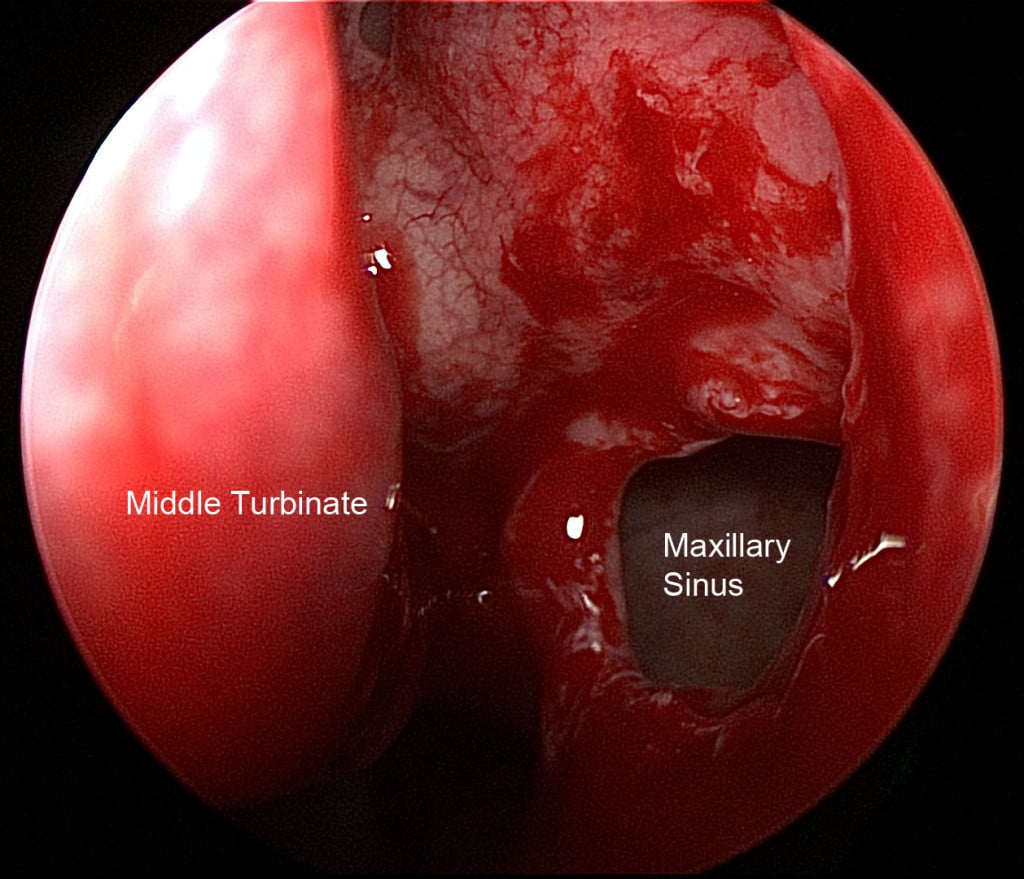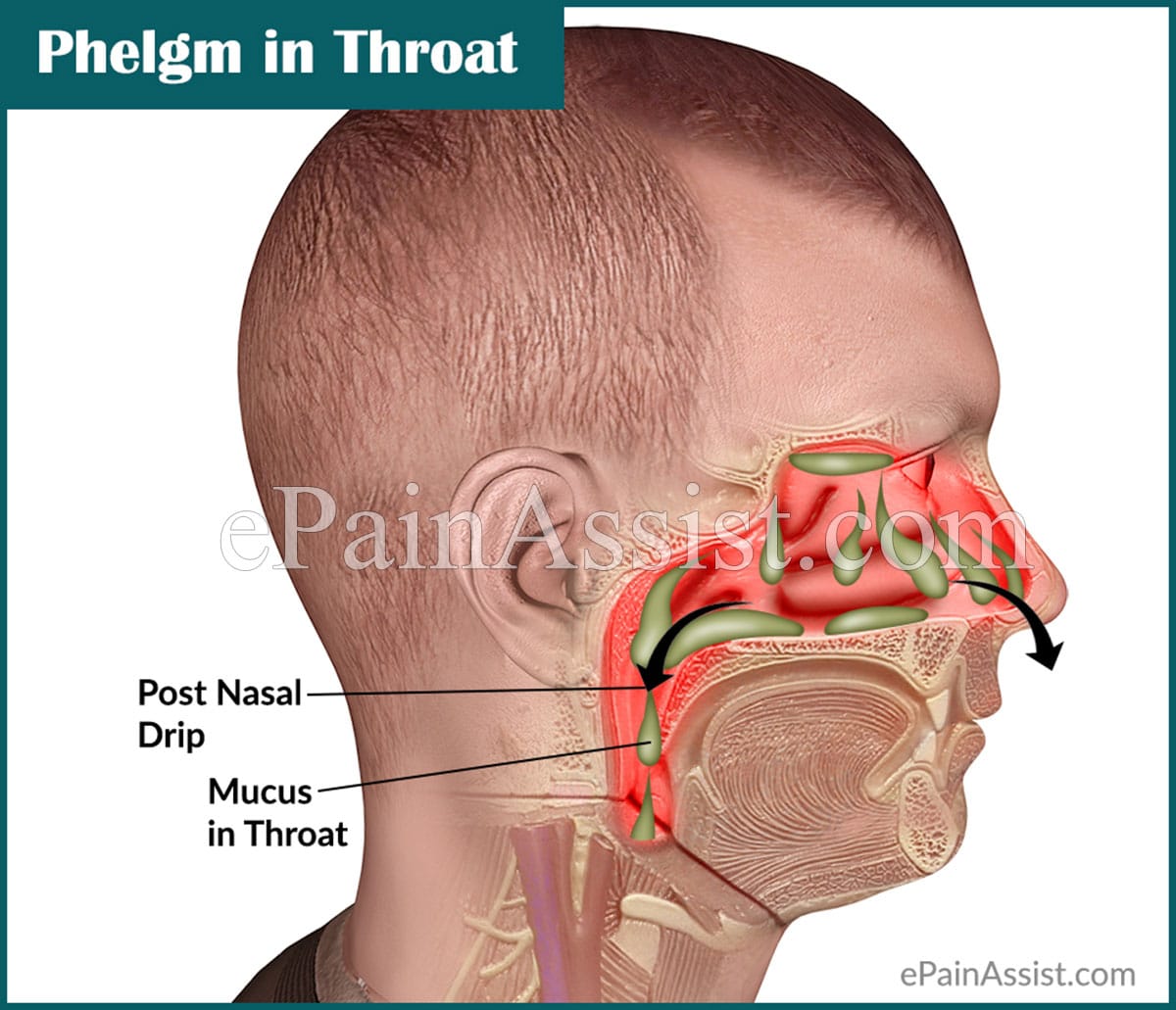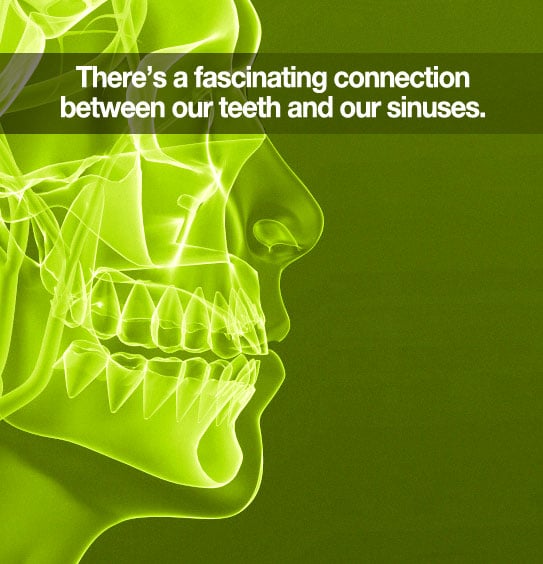What Is The Treatment For Sinusitis
The first step to treat sinusitis is to clear your nasal passages. This helps your sinuses drain properly. Draining your sinuses helps flush out a bacterial infection. If you have a bacterial infection, your doctor may also prescribe an antibiotic to fight it.
Here are a few common treatment options for sinusitis:
Nasal rinse or inhaling steam: To clear your sinuses, you rinse your nose with warm saline solution using a neti pot or a special rinse bottle.
Use lukewarm distilled or boiled water that is stored in a clean container. You can buy nasal saline packets in most pharmacies. You can also follow a recipe to make your own nasal saline rinse from the American Academy of Allergy, Asthma & Immunology.
Or you can breathe hot steam through your nose for 10 to 15 minutes, three to four times a day. Do not use steam if it triggers your asthma or makes it hard to breathe.
Nasal corticosteroid sprays: These are topical nasal sprays that contain steroids that help decrease swelling. Use your nasal spray as directed by your doctor to avoid side effects. Point it toward your ear when you spray it into your nose and away from your nasal septum .
Allergy treatment: If allergies are causing sinusitis, allergy treatment may help. These treatments may include nasal saline rinses, antihistamines, nasal steroid sprays, leukotriene modifiers, and immunotherapy . An allergist can test you for allergies and help you come up with a treatment plan.
What Are The Symptoms Of Sinusitis
When a sinus infection results from blocked sinuses, symptoms may include:
- Thick white, yellow, or greenish mucus from your nose or drainage down the back of your throat
- Bad breath from postnasal drip
- Blocked or stuffy nose
These symptoms may be similar to some respiratory viral infections. They may require different treatments.
Constant Sinus Infections: What Do I Do
Millions of people around the world may find themselves asking this question over and over again. You have a sinus infection and use nasal sprays or other medication to relieve your symptoms until it subsides, only to be disappointed when it comes right back after just a week or two of relief. This painful pattern can turn your everyday life into absolute misery and make even the simplest of things feel difficult and tiring.
Sinus pressure and pain leads to headaches, congestion that makes it difficult to breathe, and sleepless nights. These are just a few of the painful outcomes that recurring sinus infections may bring to its most severe sufferers. Not only does sinus pain make you feel terrible, reduce productivity, and make you miss out on lifeâs biggest moments, it can also contribute to other serious health problems. Sinus pain should not come and go as it pleases, it’s time to take back control from your sinuses.
Also Check: Best Nighttime Medicine For Sinus Infection
Are Sinus Infections Contagious
If your sinus infection is a viral infection , you may be able to spread the virus. If your infection lasts longer than a week with no signs of improvement, it is more likely that you have a bacterial infection and will require professional help and antibiotics. Keep in mind that the best way to tell if you have a viral or a bacterial sinus infection is to your doctor.
What Happens When A Sinus Infection Goes Untreated

Although it may seem like it, your sinuses are not just contributing to your infections. They have many other functions like regulating air temperature, producing mucus to fight infections, and assist in communication. The sinuses are very important to your overall health and contribute to many different bodily functions.
Many sufferers are able to let their body clear up the infection on its own. They can suffer through their symptoms for a few days or even a week with only over-the-counter medication and feel better fairly soon. When sinus infections wonât seem to go away or continue to return, there may be a more serious problem going on. These particularly painful infections are known as chronic sinusitis and they need more attention and care than just over-the-counter medications.
Frequent sinus infections have been known to take a toll on all aspects of sufferersâ lives. When headaches, congestion, fatigue, facial pain, bad breath and much more continue, it can contribute to other serious issues such as:
- Relationship problems
Recommended Reading: How Long To Recover From Sinus Infection
What Is A Sinus Infection
A sinus infection, medically known as sinusitis or rhinosinusitis, occurs when your nasal cavities become infected, swollen, and inflamed. Fluid buildup in the sinuses can cause germs to grow, leading to a sinus infection.
Sinusitis is usually caused by a virus and often lasts even after other upper respiratory symptoms are gone. In some cases, bacteria or, rarely, fungus may cause a sinus infection.
Other conditions such as allergies, nasal polyps, and tooth infections can also contribute to sinus pain and symptoms.
Why Do Sinus Infections Keep Returning
Sinus infections can be debilitating, and frustration builds when they come back. When this happens, your doctor may refer you to an ENT or Ear, nose, and throat specialist.
The ENT can examine your body for structural issues that can lead to sinus infections. Structural issues include:
- A deviated septum,
Recommended Reading: Fastest Way To Get Rid Of Sinus Pressure
Shouldnt A Sinus Perforation Have Healed By Now
September 27, 2020 by AllSmiles
In June, my dentist extracted two teeth, and Im waiting to get dental implants. For one upper right tooth, my dentist said he could see into my sinuses. He prescribed antibiotics for me to take for a week. I didnt have any special instructions other than taking antibiotics. My other tooth healed fine, but the sinus perforations still isnt closed. My primary care doctor prescribed more antibiotics. I have a continual headache and a low-grade fever. How long does it take for a sinus perforation to heal? Its going to be months before I can get dental implants. I think I need a second opinion. Am I going to need an oral surgeon or an ENT doctor to close the perforation? Thanks. Clay
Clay,
It seems that your dentist doesnt how to handle a perforation that doesnt heal. Its wise to get a second opinion.
The Pain And Pressure Of A Sinus Infection Is Nothing To Sneeze At Heres How To Know If You Have One And How To Cope
You have a cold, and just when you think youre getting better, it gets worse. You have pain and pressure in your face, and its hard to breathe out of your nose. You might have a sinus infection, also called sinusitis, which affects 1-8 adults every year.
A sinus infection has similar symptoms to the common cold, which is a viral infection of the nose and throat, says Kevin Hur, MD, a rhinology specialist at Keck Medicine of USC. However, a sinus infection is limited to just your nose and can be either a viral, bacterial or fungal infection.
Dr. Hur shares what you need to know about sinusitis and when you should see a doctor.
Don’t Miss: Mucinex Sinus Max Severe Congestion Relief Caplets
How To Reduce Sinus Inflammation Pain And Pressure
Whether your sinus symptoms are caused by a cold or bacterial infection, here’s how you can relieve them:
- Try a saline nose spray. Ask your doctor or pharmacist to suggest a plain saline spray. Saline mist will ease sinus swelling and help break up the mucus that’s clogging your nose. You can use it up to six times a day without worrying about side effects. You can also make your own saline nasal spray. Ask your doctor or pharmacist how, and be sure that the water you use is distilled or has been boiled, not straight from a tap.
- Use a humidifier. Stuffy sinuses respond well to moist air. Using a humidifier, especially when you sleep at night, will help keep your sinuses open and relieve the pressure. You can also try sitting in a steamy bathroom after a hot shower or inhaling the steam from a pan of hot water for faster relief.
- Apply a warm compress. Ease swelling and throbbing with a warm, wet washcloth across your forehead, eyes, and cheeks.
- Use an over-the-counter decongestant nose spray. These ease congestion and provide relief, especially early in a cold. You can get them as a nasal spray, liquid, or pill. If you use a decongestant nasal spray, don’t use it for more than 3 days. If you use it for longer, it can make your stuffiness worse, not better.
- Take OTC pain relievers. Acetaminophen, ibuprofen, or naproxen can relieve sinus pain. But never give a child or teenager aspirin for pain. It can be dangerous.
When To See Your Gp
If your symptoms are mild and getting better, you don’t usually need to see your doctor and can look after yourself at home.
- your symptoms are severe or getting significantly worse after an initial milder form of the illness
- your symptoms haven’t started to improve after around 7-10 days
- the sinusitis keeps coming back
- the discharge from your nose looks a yellowish / creamy or bloody discharge as opposed to a green discharge
They may recommend additional treatment with corticosteroid drops or sprays, or antibiotics. This will depend on what is causing your symptoms.
If you have severe or recurrent sinusitis, they may refer you to an ear, nose and throat specialist for further assessment.
Read Also: Advil Cold And Sinus Relief
Excessive Inflammation Of The Nasal Passages
Contrary to what most people think, the sinuses consist of far more space than just the nasal passages and behind the cheekbones. There are four sets of sinuses located in the head, and all of these drain mucus through the nasal passages, which act as one of the bodys sinus exit points. Your throat also acts as a drain for the sinuses. This is why people with sinusitis often experience discomfort in the throat, resulting from post-nasal drip.
If the nasal passages become inflamed, they get stopped up and the body has a hard time draining all of that backed up, infected, and often thickened mucus. This exacerbates the sinus infection, causing it to settle in even more.
There are several things you can do to relieve and reverse swollen and sensitive sinus passages:
Dr. Hester may prescribe a corticosteroid nasal spray or even an oral steroid to provide more immediate and dramatic inflammation relief. These meds should be used as directed. NEVER use corticosteroid nasal sprays or oral steroids for longer than advised. You can wind up doing more harm than good. If the sinus symptoms persist, contact your doctor to schedule a follow-up appointment.
How You Can Treat Sinusitis Yourself

You can often treat mild sinusitis without seeing a GP by:
- getting plenty of rest
- taking painkillers, such as paracetamol or ibuprofen
- avoiding allergic triggers and not smoking
- cleaning your nose with a salt water solution to ease congestion
You do not need to use all of the solution, but make a fresh solution each time you clean your nose.
Also Check: Where Are Your Sinus Cavities Located
An Ent For Chronic Sinusitis
Along with the symptoms mentioned above, fatigue, sleeplessness, and drainage can wear you down when sinusitis becomes chronic.
Chronic or recurrent sinus infections may require an ear nose and throat specialist called an Otolaryngologist. An ENT specialist is trained in medical and surgical treatment of adults and children concerned with diseases of the ear, nose, and throat.
In addition to chronic sinusitis an ENT treats these conditions among others:
- Balance disorders
- Diseases of the outer and inner ear
How Do Sinus Infections Start
Sinusitis occurs when the lining of the sinus or nasal cavity becomes inflamed. What can start as inflammation in your sinuses from a respiratory infection, allergies or environmental pollutants can spark a sinus infection when the lining of the sinuses becomes inflamed and swollen, causing mucus to become trapped and germs to grow.
“Once you have a cold or upper respiratory tract infection, that virus can then settle into the sinuses and cause inflammation as well,” said Dr. Mas Takashima, an otolaryngologist and chair of Houston Methodist ENT Specialists. “About 95% of sinusitis is caused by a virus making it much more common than bacterial sinusitis. Viral sinusitis is also much more infectious as well.”
Certain conditions, such as having allergies, asthma or a respiratory infection, can make people more susceptible to getting chronic sinus infections, and it is important that these patients be evaluated to address the cause and not just the sinusitis symptoms.
“There are many causes of chronic sinusitis. “Patients with a weakened immune system are more prone to getting recurrent acute sinusitis,” explains Dr. Takashima. “Sometimes, however, the issue may be anatomy, such as a deviated septum , scarring from previous sinus surgery, or nasal polyps, which result from chronic inflammation in the nose. Once the polyps get to a certain size, they rarely regress on their own and they narrow the sinus drainage pathways.”
Also Check: Things To Take For Sinus Infection
How Do I Know I Have Chronic Sinusitis
If youre suffering from sinusitis, you certainly wont miss the symptoms. Though much of the discomfort comes from severe congestion of the nasal passages, there are a number of other symptoms that crop up with chronic sinusitis:
- Dry mucus blockages in your nasal passages
- Reduced sense of taste or smell
- Mucus dripping from the nostrils
- Pain, pressure, or discomfort around your forehead, cheeks, and/or eyes
These symptoms are usually mild to moderate, being enough to interrupt your daily life, but rarely enough to leave you bedridden. Still, the best course of action is to seek treatment before your sinusitis gets worse.
Will Sinus Infections Resolve If Left Untreated
Lingering sinus infections should be treated before they escalate into a more serious issue. If a sinus infection is untreated, it may begin to impact the surrounding areas: the eyes and brain.
Untreated sinus infections can result in orbital and intracranial complications. Orbital refers to an infection that moves from the sinus into the eye. It can even result in an abscess in the eye area, which threatens vision.
Intracranial infections refer to infection in the brain. These can ultimately progress to become a brain abscess or meningitis if left untreated.
Because the sinuses are located close to the eye and brain, the most serious complications of an untreated sinus infection affect these important structures.
Also Check: How To Make My Sinus Headache Go Away
What If My Sinus Infections Keep Coming Back Sinus Infection Treatment At Kaplan Sinus Relief
So, the next time you ask, What are the symptoms of a sinus infection? you will have more information at your fingertips! Sinusitis symptoms lasting longer than a week merit a doctors visit. Fortunately, if you experience frequent, long-lasting sinus infections and problematic sinusitis symptoms, then balloon sinuplasty in Houston may help.
Balloon sinuplasty is a minimally invasive and effective way to treat your underlying sinus issues, and can deliver lasting relief in as little as 20 minutes. We can help you treat your sinus infection and get you feeling and breathing better again in no time.
Call 713-588-9987 or contact us online to schedule an appointment with Dr. Kaplan today!
More Helpful Articles by Kaplan Sinus Relief:
When To See A Doctor
Many sinus infections get better on their own, and the symptoms can be alleviated with home remedies. However, you should see a doctor if:
- your symptoms start to improve and then get worse again
- the pressure behind your eyes or in your face gets really uncomfortable
- the symptoms last for more than ten days
- your fever lasts more than 3-4 days
- your fever goes about 102 degrees Fahrenheit
- over-the-counter and home remedies arent helping
Recommended Reading: Sinus Surgery Cost Without Insurance
When Should I Go To The Doctor For A Sinus Infection
Can a sinus infection go away on its own? Sinus infections can occasionally go away on their own. However, if your sinus infection is caused by bacteria, you will likely need antibiotics. If you have a viral sinus infection, then you dont need antibiotics, which you will need to get from a doctor.
If you have a severe sinus infection or chronic sinus infections, visiting a trusted sinus doctor can be hugely beneficial. Sinus doctors like Dr. Michael Kaplan can help you determine what is contributing to your recurring infections and offer you help in managing your symptoms. In some cases, they may recommend that you pursue additional sinus infection treatment, such as balloon sinuplasty or, in more extreme cases, sinus surgery.
How An Urgent Care Facility Can Help

The medical professionals at an urgent care facility will question you about your symptoms, when they started, and perform an examination. The doctors can prescribe medications to alleviate your most troublesome symptoms, such as steroid nasal sprays to open up your clogged sinuses stronger ibuprofen or acetaminophen than you can buy over-the-counter antibiotics if they think your sinus infection is bacterial rather than viral.
Also Check: Can Sinus Infection Cause Mouth Sores